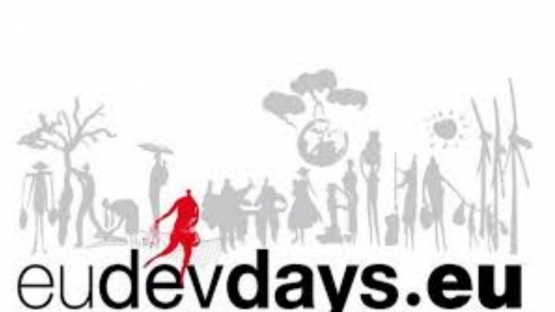With the deadline for the achievement of the Millennium Development Goals coming up in 2015, and discussions on the post-2015 UN development agenda underway, the IAEA is intensifying its efforts to raise awareness of the benefits of nuclear science and technology for development, in order to ensure their inclusion in the discussions. As part of its consistent efforts to present its work in development areas, the IAEA is currently taking part in the EU Development Days 2013 (EDD2013) in Brussels, where representatives of different organizations have gathered to share ideas and information.
Organized by the European Commission (EC) from 26 to 27 November 2013, EDD2013 is Europe's premier forum on international affairs and development cooperation. It provides a unique opportunity and context for the IAEA to highlight how and why nuclear science, technology and applications are important to international development. It is also an outstanding opportunity to increase the Agency's visibility as a partner for development and to expand opportunities for potential partnerships. The event brings together a diverse range of actors, including parliamentarians, business leaders, academics, civil society advocates, practitioners, and media brokers, under the slogan "A Decent Life for All by 2030 - Building a Consensus for a New Development Agenda".
The IAEA is participating in EDD2013 in the session entitled 'Soil Data and Information for Development', with a presentation that focuses on agricultural soil management and the importance of establishing science-policy interfaces to ensure that scientific results reach policy makers. The presentation will explain how nuclear applications assist Member States in improving management practices for soil and nutrients in order to enhance the quality, fertility and productivity of soil. This supports food security, conservation of natural resources and sustainable agriculture.
Nuclear techniques can be used to track the movement of water and nutrients through soil, measure soil erosion, and quantify nutrient and water use by crops. Data collected using nuclear techniques greatly contributes to the development of soil conservation and water management policies to ensure healthier soils, and thus better crop yields.
Panellists in the session on 'Soil Data and Information for Development' include Katherine Long (Joint FAO/IAEA Division of Nuclear Techniques in Food and Agriculture, IAEA), Arwayn Jones and Luca Montanarella (Soil Data and Information Systems, Joint Research Center, EC), and Alexander Mueller (sociologist and politician).
Panel participants: "Soil data and information", EDD2013


